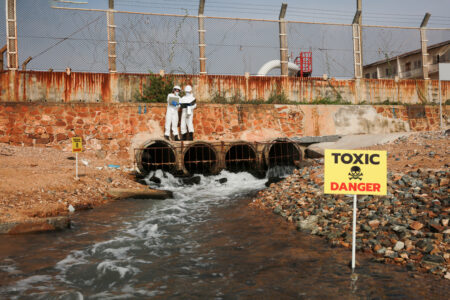
Share On Social!
Over the past two months, Latinos and all Americans have spoken out against the EPA’s proposal to reduce the waters that are protected by the agency.
Of the 577,212 public comments submitted, 2,367 members of the Salud America! network sent EPA Chief Andrew Wheeler an email.
These messages urged Wheeler’s organization to not follow through with their plan to revise the definitions of the Waters of the United States (WOTUS), or more commonly the “dirty water rule.”
The EPA is reviewing the messages, but thousands of miles of rivers, lakes, and wetlands could be put in danger of pollution if the EPA enacts this rule.
Risks Involved
The landmark Clean Water Act was passed in 1972 as part of an effort to reduce widespread pollution. Greater requirements were added to the bill in 2015. 
That rule calls for any business that has the potential to pollute protected waters to request permissions to do so.
The EPA’s proposed plan will cause an estimated 18% of streams and 51% of wetlands to no longer fall under agency protection, according to Energy & Environment News. The reduction would give companies more room to dispose of toxic waste by dumping in wetlands and streams.
Worse, Latinos and all Americans could face severe consequences if the EPA passes WOTUS.
This ruling is projected to impact 117 million people’s sources of clean water, according to an in-depth report by Popular Science. Not only will humans be affected by an increase in toxic disposal, but the environment, animals, plants, and groundwater also face harm.
“Polluted waterways are not an environmental issue of the future; they pose an immediate danger that we have the ability to prevent,” Kaitlin Sullivan of Popular Science writes.
Next Steps
While there has been backlash from the scientific community, the EPA has been quick to downplay the new rule’s impacts.
“Well, the mission of our agency is to protect public health and the environment and that’s what we do and we do that every day,” EPA Chief Wheeler told CBS last month. “You know, it’s public health and the environment and that is our mission.”
Still, many of the comments submitted contained data that contrasts the EPA’s statements. 
Adam Ward, a hydrologist and professor at Indiana University, said he hopes the numbers will make an impact in the EPA’s final decision.
“My sincere hope is that this work feeds back into the regulatory process and perhaps serves as a prototype for an assessment that the agencies could use before they finalize anything,” Ward told Energy & Environment. “Our hope is that by getting through the publication process, that it has a chance to affect the way this policy is evaluated and the way that these revisions are considered.”
Now that the public comment period has closed, the EPA will continue to review submitted materials to make its final ruling on WOTUS.
Read more about environmental, chemical exposure!
Editor’s Note: This article is part of a collaboration between Salud America! and the Hoffman Toxicant-Induced Loss of Tolerance (TILT) program at UT Health- San Antonio. To find out if you are TILTed due to exposure to everyday foods, chemicals, or drugs, take a self-assessment or learn more about TILT.
By The Numbers
1
Quick Survey
Can help you find out how chemically sensitive you are



